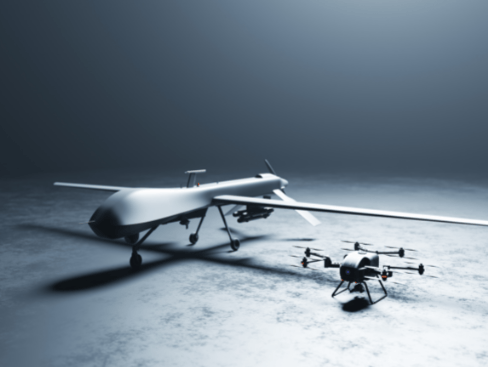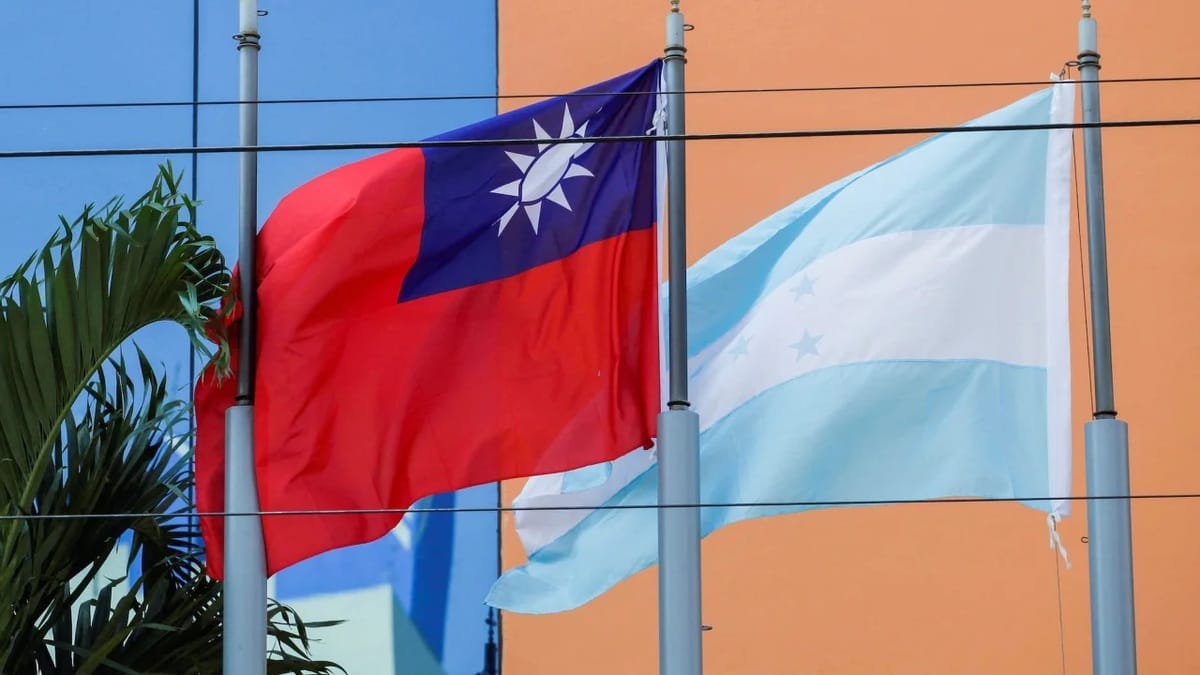
"The world is now too small for anything but the truth and too dangerous for anything but the truth."
Intelligence Snippet of the Week:
The intelligence cycle is a process that is used to gather and analyze information in order to make decisions. It is often used in the field of national security and law enforcement, but it can be applied to a wide range of fields.
The intelligence cycle consists of five stages:
Planning and Direction: In this stage, analysts identify the information needs and requirements of their organization or agency. They determine what information is needed, who needs it, and how it will be used.
Collection: In this stage, information is gathered from a variety of sources. This can include open-source information such as news articles, as well as classified information gathered through surveillance or other means.
Processing and Exploitation: In this stage, the collected information is analyzed and processed. This may involve translating information into different languages, decrypting coded messages, or analyzing satellite imagery.
Analysis and Production: In this stage, analysts interpret the information that has been processed and draw conclusions based on the available evidence. This may involve identifying patterns or trends, evaluating the reliability of sources, or predicting future events.
Dissemination: In this final stage, the intelligence that has been analyzed and produced is shared with the appropriate decision-makers. This may involve creating reports, briefings, or other forms of communication.
Overall, the intelligence cycle is a structured and systematic approach to gathering and analyzing information in order to support decision-making.
Weekend Insights
On Thursday a U.S. contractor was killed when an Iranian drone hit a coalition base in Syria. Five U.S. service members and a second contractor were also wounded. Following that initial attack, Defense Secretary Lloyd Austin said in a statement that U.S. Central Command forces retaliated with "precision airstrikes" against facilities in eastern Syria used by groups affiliated with Iran's Revolutionary Guard. On Friday, there were three additional attacks on U.S. military bases in Syria, and a U.S. service member was wounded in one of those three attacks. The attack and U.S. response threaten to upend recent efforts in the region to de-escalate tensions, as Saudi Arabia and Iran have been working toward reopening embassies in each other's countries.
Russia has made a deal with Belarus to station tactical nuclear weapons on its territory by July 1, 2023. President Putin emphasized that this move would not violate international obligations on the nonproliferation of nuclear weapons. Putin compared this move to the U.S.'s longstanding practice of deploying tactical nuclear weapons on the territory of their allied countries. Russia has already transferred several Iskander tactical missile systems to Belarus, which can be used to launch nuclear weapons. Moreover, Russia has stationed 10 aircraft in Belarus capable of carrying tactical nuclear weapons. The U.S. has said that it has not seen any indication that Russia has moved any nuclear weapons yet. Ukraine's National Security and Defense Council Secretary, Oleksiy Danilov, has criticized this move as a step towards the internal destabilization of Belarus. Ukraine accused Russia of taking Belarus as a nuclear hostage. Overall, Russia's decision to station tactical nuclear weapons in Belarus has caused concern among neighboring countries and the international community. The move raises questions about whether this will escalate tensions in the region and how it may affect the balance of power.
On March 24, 2023, the Chinese Director of the Office of the Central Commission for Foreign Affairs Wang Yi met in Beijing with New Zealand's Foreign Minister Nanaia Mahuta. The meeting between Wang Yi and Nanaia Mahuta is significant as it shows China's willingness to strengthen economic ties with New Zealand. New Zealand is China's biggest trading partner in the Pacific region. Despite tensions in the Asia-Pacific region, the meeting highlights China's continued efforts to maintain influence on countries in the Asia-Pacific. The U.S. views this as a sign of China's readiness to undermine U.S. influence in the region by expanding its economic reach. However, some officials in the U.S. view this positively. They see it as a potential opportunity to engage with China through New Zealand to achieve mutually beneficial economic cooperation. The U.S. continues to be concerned about New Zealand's moderate stance towards China on various issues, as it may weaken the West's united front against China. The U.S. applauds New Zealand's condemnation of Russia's invasion of Ukraine and its opposition to lethal aid to support Russia. The future of China’s relationship with New Zealand will be a key litmus test for other countries in the Indo-Pacific.
Headlines

On Thursday, a U.S. contractor was killed — and five U.S. service members and a second U.S. contractor wounded — when a suspected Iranian drone hit a coalition base in Syria, according to U.S. officials.
Following that initial attack, Defense Secretary Lloyd Austin said in a statement that U.S. Central Command forces retaliated with "precision airstrikes" against facilities in eastern Syria used by groups affiliated with Iran's Revolutionary Guard. The Defense Department said the intelligence community had determined the unmanned aerial vehicle used in the Thursday attack was of Iranian origin.
Analyst Comment:
The recent events in Syria have several significant geopolitical implications. The attack on a U.S. coalition base in Syria and subsequent retaliatory strikes by the U.S. pose a risk to regional stability. The attacks and potential for further escalation could destabilize the delicate balance of power in the Middle East and disrupt ongoing peace efforts. The suspected Iranian drone attack on the U.S. coalition base suggests that Iran may be seeking to increase its military presence and influence in Syria. This could complicate the already complex situation in the country and exacerbate tensions between regional actors.
The U.S. response to the attack could signal a shift in the Biden administration's approach to Iran. The precision airstrikes against Iranian-affiliated groups in Syria may indicate a more aggressive stance toward Iran's regional activities. This aggressive stance could potentially lead to further conflict in the region. The attack and U.S. response may also impact the ongoing diplomatic efforts between Saudi Arabia and Iran. The attacks could potentially undermine the progress made toward reopening embassies and normalizing relations between the two regional rivals.
Overall, the recent events in Syria highlight the fragility of the regional security environment and the potential for escalation and destabilization. As tensions escalate it will be important to monitor the situation closely and assess the potential risks and implications for regional security and stability.

"China often makes promises in exchange for recognition that remain unfulfilled, the de facto U.S. embassy in Taipei said on Saturday as Honduras moves ahead with ending its long-standing ties with Taiwan in favor of China." - CNN
Analyst Comment:
The diplomatic dispute between China and various other countries over the recognition of an independent Taiwan underscores the importance of Taiwan in the global geopolitical landscape. Previously, China's efforts to isolate Taiwan diplomatically have not been successful, and Taiwan continues to find partners willing to recognize it as an independent state. This could further escalate tensions between the two countries and increase the risk of military conflict.
The potential loss of diplomatic recognition by Honduras is a significant setback for Taiwan and its diplomatic efforts in Central America. Honduras is one of the few countries in the region that still recognized Taiwan, and the severing of ties could embolden other countries to follow suit. This could limit Taiwan's ability to project its influence in the region and provide an opportunity for China to increase its presence in Central America.
The United States' continued support for Taiwan and its efforts to deepen engagement with the island underscores its strategic interest in the region. With China expanding its influence in Central America, the U.S. sees Taiwan as a critical partner in countering Chinese aggression and maintaining its influence in the region. However, the U.S. needs to balance its support for Taiwan with the risk of provoking China and escalating tensions between the two superpowers.
The drills were designed to improve the execution of U.S. extended deterrence by deploying American strategic assets amid the North's growing threats. North Korea has been ramping up its military tests in recent weeks, firing multiple cruise missiles to practice tactical nuclear attacks.
Analyst Comment:
The recent missile launches by North Korea are a clear provocation and a threat to regional stability. The timing of the launches, coinciding with joint military exercises between the U.S. and South Korea, suggests that the North is trying to send a message to its adversaries. It is possible that the launches are intended to test the resolve of the U.S. and South Korea and to gauge their response to such provocations.
The fact that the North is continuing to conduct missile tests despite international sanctions and pressure is a cause for concern. It suggests that the regime is intent on developing its missile capabilities and is willing to risk further isolation and economic hardship to do so. This underscores the need for continued vigilance and close monitoring of North Korea's missile program.
While the latest missile launches did not pose an immediate threat, they serve as a reminder of the North's nuclear ambitions and the potential for escalation in the region. The U.S. and its allies must remain prepared to respond to any further provocations from the North. The U.S., Japan, and South Korea must take steps to deter any aggression. At the same time, efforts should be made to engage with the North and to find a peaceful resolution to the ongoing tensions on the Korean peninsula.
Country Profile
Syria

Syria is a country located in the Middle East, bordered by Turkey to the north, Iraq to the east, Jordan to the south, Israel and Lebanon to the southwest.
Government:
Syria is a republic with a presidential system of government. The President is both the head of state and the head of government. The current President of Syria is Bashar al-Assad, who has been in power since 2000. The Syrian government has been dominated by the Ba'ath Party since 1963, and political opposition is heavily suppressed. Syria has been embroiled in a civil war since 2011, with the government forces fighting against various opposition groups.
Economy:
Syria's economy has been heavily impacted by the ongoing civil war, with GDP plummeting and the country experiencing a severe humanitarian crisis. Prior to the conflict, Syria's economy was largely state-controlled and reliant on oil exports. Agriculture also played an important role in the economy. Since the conflict, Syria's economy has suffered significant damage, with the destruction of infrastructure and businesses. International sanctions have also been imposed on the country, further complicating economic recovery efforts.
Military:
The Syrian Arab Army is the main military force in the country and is controlled by the Syrian government. The military has been heavily involved in the civil war, fighting against various opposition groups. The Syrian military has been accused of human rights violations during the conflict, including the use of chemical weapons. In addition to the Syrian military, various foreign forces have been involved in the conflict, including Russian forces and Iranian-backed militias. The conflict has caused significant damage to Syria's military, with the loss of personnel and equipment.
Travel Advisory Levels for Syria
Security Situation:
Syria has been experiencing a civil war since 2011, which has led to the displacement of millions of people and significant damage to infrastructure. There is still ongoing fighting in various parts of the country, including the capital city of Damascus. The security situation in Syria remains unstable and unpredictable. Terrorist groups, such as ISIS, are active in the country and pose a significant threat to the safety of tourists and locals alike.
Travel Advisories:
Many countries have issued travel advisories warning their citizens against traveling to Syria. The United States, for example, has issued a Level 4 Travel Advisory, which advises against all travel to Syria due to terrorism, civil unrest, kidnapping, and armed conflict. The UK government also advises against all travel to Syria due to the ongoing conflict and terrorist threat. The Australian government has issued a similar advisory, warning its citizens against all travel to Syria due to the high threat of terrorist attack, kidnapping, and violence.
Health and Medical Concerns:
Apart from the security concerns, travelers to Syria may also face health and medical risks. The country's healthcare system has been significantly affected by the conflict, and many hospitals and medical facilities have been damaged or destroyed. There is also a shortage of medical supplies and personnel, making it difficult to access healthcare services in some parts of the country. Travelers to Syria are advised to take appropriate health precautions, including getting vaccinated against infectious diseases and bringing along adequate medical supplies.
Interesting Articles from the Weekend

Stay safe out there



